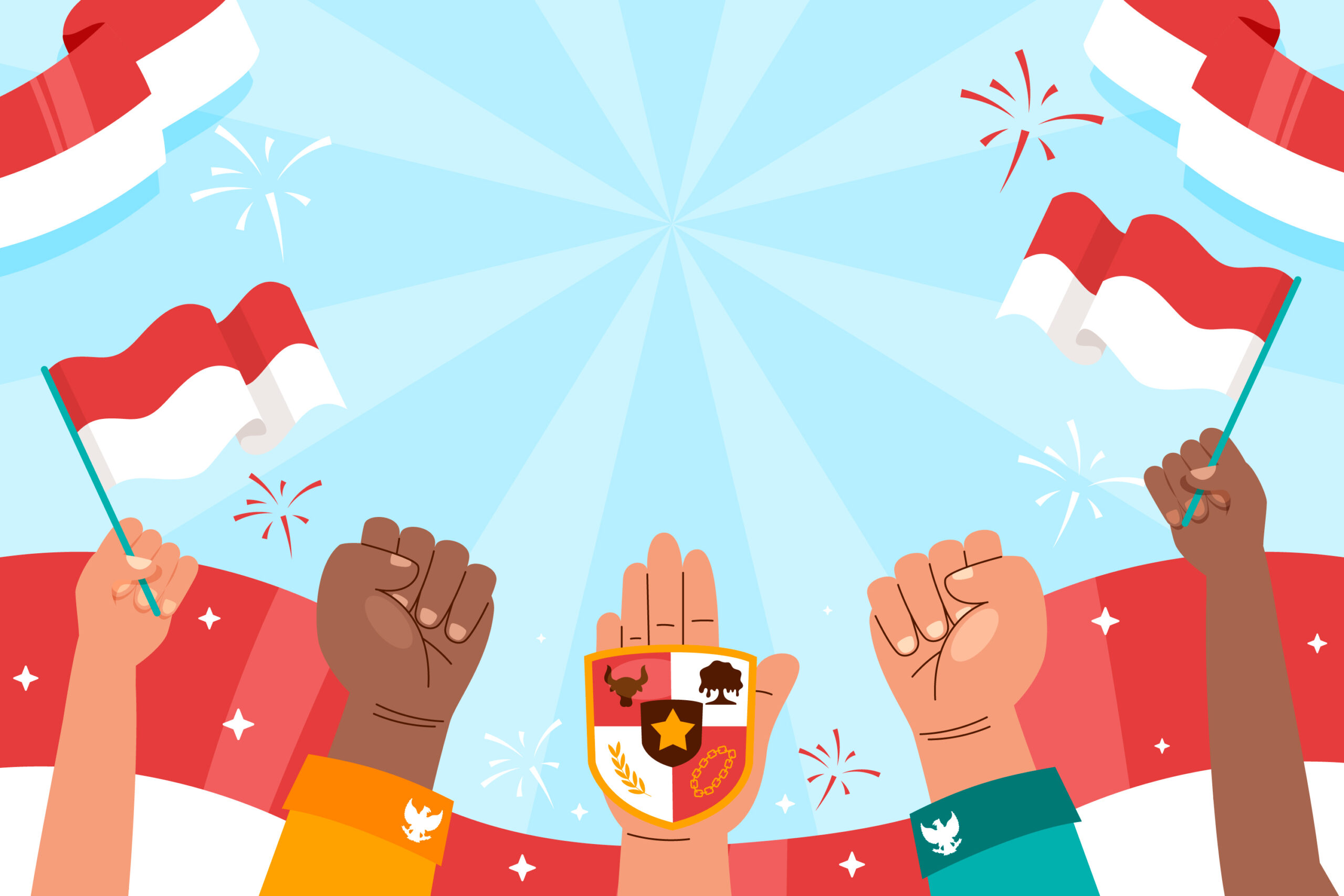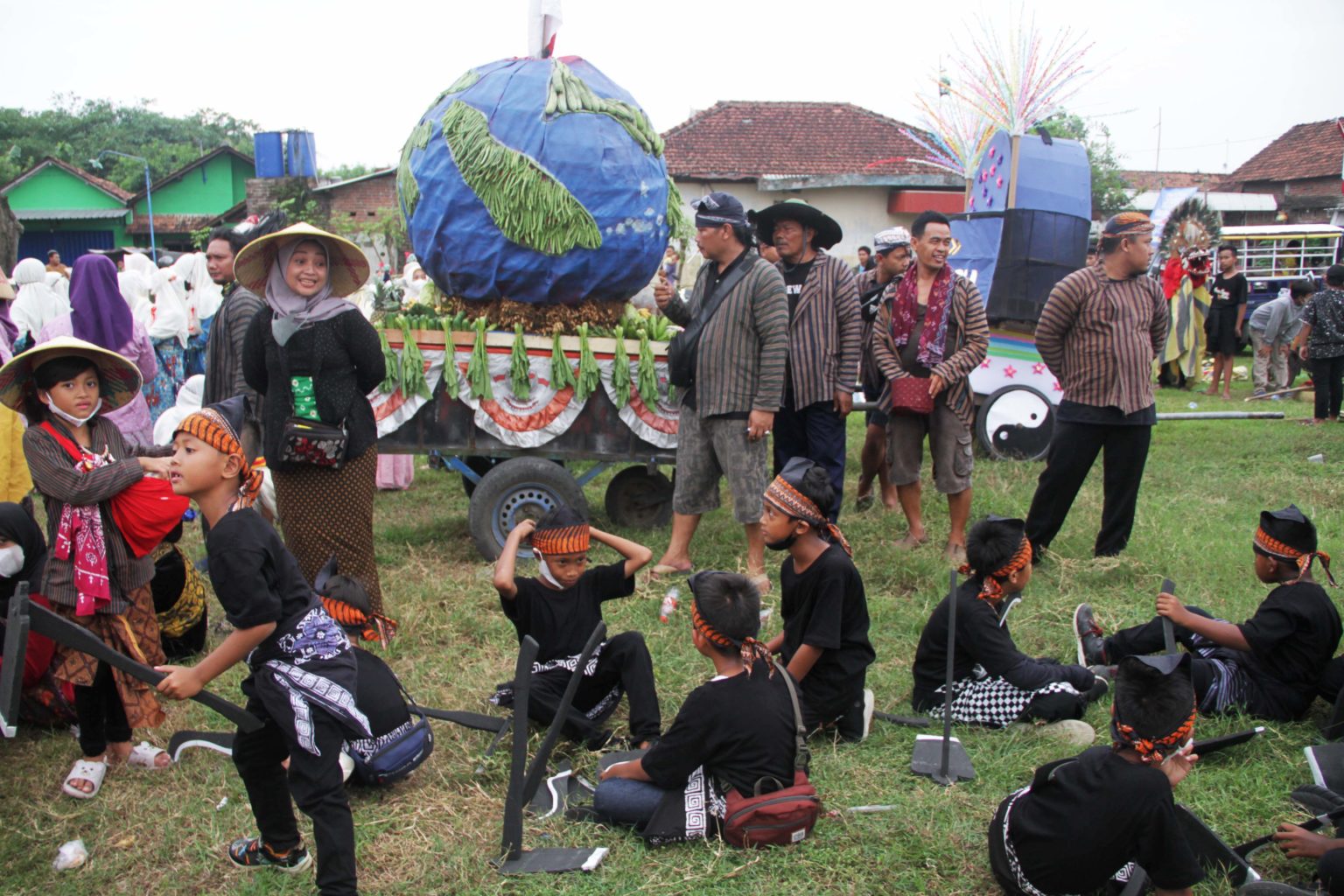Indonesia is a nation rich in culture. It holds incredible diversity—ranging from ethnic groups, religions, races, traditions, and more. This vast cultural variety has shaped Indonesia into a truly multicultural society. In the eyes of the world, Indonesians are known for their humility and warmth. People from different backgrounds are generally able to live together harmoniously, even with their cultural differences. However, this harmony doesn’t automatically guarantee that unity will always prevail amidst the diversity.
With such a wide range of cultures, differences are bound to exist. But these differences, when embraced and unified, can become a unique strength for the Indonesian nation. On the other hand, if not managed wisely, they can turn into a double-edged sword.Even minor differences have the potential to spark conflict within society. This is why understanding and maintaining the unity of Indonesia is crucial—not only as an idea but as a living value that must be practiced every day.
Definition of Indonesian Unity
The word unity (or persatuan in Indonesian) comes from the root word satu, which means whole or undivided. Therefore, unity refers to the merging of various diverse cultures (or differences) into one unified whole.
The word Indonesia in “Indonesian Unity” refers to all citizens of the Republic of Indonesia. So, Indonesian Unity can be understood as the unification of all elements of society in the pursuit of sovereignty.
Division and Unity
Due to Indonesia’s vast cultural diversity, the nation inevitably faces many differences stemming from that very diversity. Culture can be a force that unites people—but if not managed wisely, it can also become a double-edged sword.
Back in the days before Indonesia gained independence, the nation was successfully colonized through a strategy known as “divide and conquer” (divide et impera). The colonizers exploited differences among the people, pitting one group against another. And indeed, this method proved effective in helping them achieve their goals.
Looking at Indonesia’s colonial history, it becomes clear that differences can lead to division. Provocative issues were played up to incite anger, causing certain communities to feel insulted—eventually leading to clashes between groups who could not accept having their culture mocked or belittled.
Society often seems eager to compare one culture to another—believing their own is superior or more refined than others. This mindset leads to conflict: verbal disputes, insults, and in extreme cases, group-based violence that escalates into division.
But it’s not just cultural differences that can cause disunity. Ego, greed, and selfishness on the part of individuals can also play a major role. The common good is no longer a priority—group or personal interests now come first.
In pursuit of their desires, people push others aside, insult, and bring each other down. They’ll do anything to get what they want—even if it means tearing their own country apart. They’re willing to sacrifice national unity just to fulfill personal ambitions.
It’s the selfish refusal to accept differences that lies at the root of the problem. There’s a desire to make everything conform to one’s own views. Those who are different are ostracized. And when that happens, the marginalized may form their own groups in retaliation—seeking to overthrow those who excluded them. Eventually, these groups stand in opposition, and conflict between them becomes inevitable.
People are always ready when they win—but they’re rarely prepared when they lose. The group that loses a battle often retaliates, driven by revenge. They refuse to accept defeat, and the cycle of vengeance continues without end.
Even in sports, division is sometimes unavoidable. Fanatical supporters often mock and insult one another. When die-hard fans of one team encounter rival fans—especially if the teams or supporters are long-time enemies—clashes are likely to break out. Fans and even players may reject the referee’s decisions, claiming unfairness or bias. During a match, players might even confront or judge the referee over calls they disagree with.
However, sports also have the power to unite. Regardless of which club people support, they can come together as one when cheering for the Indonesian national team. It’s no longer about clubs—people who may be at odds can suddenly forget their conflicts and stand united, if only for a moment. But unfortunately, this unity is fragile. When Indonesia loses, many immediately blame the players who have already given their all.
In terms of culture, the Indonesian public sometimes appears apathetic toward their own heritage. Many are unable or unwilling to preserve their own regional traditions. Instead, they often criticize the cultures of others, while failing to realize their own are being neglected. Yet, the moment a piece of local culture is claimed by another country, a sense of unity emerges. People suddenly rally to defend and promote their own heritage. The insults disappear—at least temporarily. But once the issue fades from the spotlight, people often return to their old habits.
Proxy war
Many people may not know what a “proxy war” is. A proxy war refers to a conflict where the aggressor doesn’t engage directly. Instead, the attacking party uses indirect means to destabilize or destroy a targeted region (or country), with minimal direct intervention.
In a way, a proxy war is like a modern version of “divide et impera” (divide and conquer). But they are not the same. In devide et imperathe tactic is to exploit differences and provoke internal conflict. Once the targeted groups are weakened through war and chaos, the instigator steps in and takes control of both sides, which are now equally devastated.
In contrast, a proxy war can also involve mercenaries being hired to attack, or manipulating individuals, groups, or even official institutions (state or non-state) to turn against their own country.
Another method includes the spread of addictive products, such as drugs. By flooding a nation with narcotics, the instigators can weaken the population, making the country easier to control.
With just substances like these, a nation like Indonesia could be brought to its knees. Those addicted to illegal drugs lose all sense of unity—they become fixated on satisfying their addiction, and their ability to think critically or rationally is destroyed. Proxy war actors can seize this moment of national vulnerability—when the people are fragmented and disoriented—to take over a nation already crumbling from within.
Proxy war actors can also use hoaxes or false narratives as weapons of attack. Internal disputes can erupt from the spread of sensitive issues. If left unchecked, these tensions can escalate into full-blown domestic conflict. And once the nation is destabilized, it opens the door to foreign invasion.
Some may insist that only their opinion or choice is right. People begin attacking one another over their differences, spreading hatred and hostility. When conflict breaks out, everyone rushes to justify their actions while blaming others. Chaos follows.
A Lesson from Majapahit
Everyone knows the Majapahit Kingdom was a powerful and expansive empire—once covering almost the entire archipelago. It had a formidable military, and was known for its strength in governance and politics.
Despite conquering many regions and having unmatched power, Majapahit eventually collapsed—not due to external enemies, but from internal conflict. It was torn apart by a civil war.
So, the question is: Will we follow the same path? A once-glorious and respected nation that ultimately falls at the hands of its own people due to inner conflict?
Of course not. We must not let Indonesia fall apart over trivial matters that could easily be resolved—matters that, if ignored, may ignite conflict among us.
Learning from the Proclamation
We must learn from our nation’s own past—how division once tore us apart due to the colonizers’ divide-and-conquer tactics. But in the face of a common enemy—the colonizers—the people were able to unite. They didn’t care about their differences. They understood that this land belonged to them, not to the foreign invaders. Their only desire was for the colonizers to leave their homeland.
It is only right that we learn from our predecessors about the true meaning of unity. Our role now is simply to preserve Indonesia’s integrity and contribute to its development in this era of independence.
There is no longer a need to take up arms and fight foreign invaders. What we need now is solidarity among fellow Indonesians. There’s no need to divide or discriminate—our shared duty is to protect the unity and wholeness of this nation.
Avoiding Division
In a country rich with cultural diversity, we must respond with wisdom. We need to embrace the differences that exist between us. These differences cannot be erased—so there is no need to form separate groups based on them. Diversity is a natural part of life, and it will always exist.Dalam keaneragaman budaya, kita harus bijak dalam menyikapinya.
We must also strive to reduce ego, greed, and selfishness. It’s essential to uphold the value of tolerance. We cannot force those with different opinions to agree with us. Instead, we should find ways to unite different perspectives, so that the final outcome is balanced and complementary.
We must avoid labeling other cultures as inferior, and refrain from claiming our own as superior. We must not pursue our goals through unfair or harmful means—rather, we should aim to compete in a healthy and respectful way.
We should also avoid insulting one another. While freedom of speech is protected by law, we also carry the responsibility to speak with care. If we feel the need to criticize, let it be constructive criticism—offered with good intentions and accompanied by possible solutions.
In the midst of globalization and the rapid flow of information, we must be selective in choosing which foreign cultures to adopt. We cannot blindly accept outside influences without careful consideration. It’s important to reflect on whether what we’re imitating is beneficial or harmful.
We must truly understand the truth behind any information. It’s not wise to accept everything at face value. It’s important to first verify whether the information is true or false. Don’t get carried away by rumors or fall for hoaxes.
Just like in the real world, we must tread carefully in the digital world. One misstep could cause division due to the spread of false information. That’s why, before sharing anything, we must first check its accuracy—instead of fueling the spread of rumors.
We also shouldn’t let our emotions take over too easily. Always seek the truth first. Chroshcheck Never consume or spread unverified content that could lead to conflict. Avoid being provoked by divisive narratives.
As a nation, we must learn to set aside our differences. It’s crucial that we stand together and work hand in hand to build this country. There’s no need to spread sensitive issues, as they can shake the unity of our nation. Therefore, let’s be wise in facing differences, and not be swayed by divisive narratives that may threaten the unity of the Republic of Indonesia.
In Conclusion
Perhaps Bung Karno said it best: “My struggle was easier because I fought against foreign invaders. Your struggle will be harder, because you will fight against your own brothers.”
Differences will always exist and can be found anywhere, but that doesn’t mean unity is impossible. Conflict may arise from differences, but we must ensure it doesn’t grow into long-term division. Unity must always be preserved—for the integrity of Indonesia.


